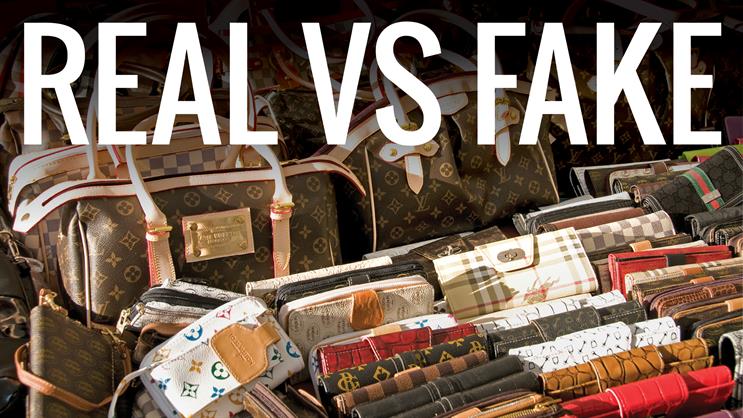
Imagine it. All day you have been walking through the beautiful jagged beauty of the Yorkshire Dales, following a series of sheep tracks masquerading as footpaths, barely visible on your creased Ordnance Survey map.
The wind is getting up now, and the snow is whipping across in drifts. You adjust the peak of your hat lower across your eyes and set yourself for the last big push up the last big hill.
Their fakes are graded from ‘good’ to ‘bad’
Eventually you conquer it and, despite the cold, you feel the prickle of sweat across your back. Ahead, you make out the bright lights of The Buck Inn, framed against the mountainside behind it.
The snow is really coming down now, the pub sign swinging in the wind, battered by the blizzard.
You reach the shelter of the front porch, and ease your pack off your shoulders with a sigh of relief. All day and over 25 miles it’s been with you, a constant nagging companion you could never quite put out of your mind.
With a final stamp of your boots to get the worst of the snow off, you duck your head and step inside the pub.
Immediately the warmth hits you across your face. The brightness of the open fire assails your senses. You’re greeted by the smell of hot food and the knurled faces of locals sitting by the mantle, looking up at you without expression.
The landlord smiles a welcome, you gesture to the local brew and he pulls you a pint. Sinking into a faded leather armchair, you reflect that the best things in life really are hard-earned.
A heavenly way to spend a day off, or your idea of hell on Earth? Whichever it is, few would argue that such a visceral real-world experience could ever be recreated by a virtual reality. This is beyond the realms of even the smartest software designer, the most gifted engineer. There is a basic human effort-to-reward ratio that makes it impossible.
But what of that word virtual? Somewhere along the way we have allowed ourselves to be subverted by the syntax of artificial creation. Is there such a thing as virtual reality at all?
Virtual reality will slip into obsolescence as a phrase, discarded along with faxes, telexes and jobs for life.
Virtual goods
When you run the gauntlet of pushy salesmen in the rogue markets of Asia or South America, you don’t think you are buying ‘virtual’ designer goods. That bargain you snapped up in Manila Airport for $20 is not a virtual Hermès bag, it’s a fake, and you know it.
This is doubly ironic in the case of many of the fakes from the East, as their provenance is often identical to the ‘real’ goods. I heard a story a few years back about a big Vietnamese factory that made trainers for a well-known sports brand. When the recession bit, the purchasing manger flew in and told the owners that, whereas last year his firm had bought 2m pairs of pumps from them, this year they would be buying only 1m.

The two young factory owners did not demur, and the purchasing manager left feeling relieved that the conversation had gone as well as it had. Only later did he learn that they had still produced 2m shoes: 1m for the purchasing manager, and the other 1m to be sold as fakes.
So we find ourselves in the strange position where unofficial merchandise that in some cases may be indistinguishable from the official branded product is referred to as fake, whereas an artificial representation of a real-world experience that can never reflect reality is tagged virtual.
Perhaps the Indonesians have the best approach. For them, the concept of fake versus real is not binary, as it is here in the West (and in legal departments everywhere).
Their fakes are graded from ‘good’ to ‘bad’, and people are proud to spend more money to get a good fake that shows off their level of sophistication and wealth.
Then there’s the issue of reality. If you spend your entire time playing shoot-’em-up games, then that is your reality; just as surely as reality for frequent fliers is that almost every meal you eat is served on a tray, with cutlery wrapped in cellophane.
A question of gaming
It’s all a question of what you are used to. I had a friend who had spent so much time at work he tried to use his keycard to get into his front door one night. I’ve laid down on my bed at night after a period of prolonged flying, and reached for an imaginary seatbelt. Who’s the idiot: the guys gaming online, or the people playing games inside the corporation?
The one conclusion I can draw from this is that things are only going to get more blurred. As the tech gets better and the patterns of behaviour more ingrained, the very concept of artificial reality ceases to have any meaning. Virtual reality will slip into obsolescence as a phrase, discarded along with faxes, telexes and jobs for life.
My reality is getting home after a long day at work, and seeing my daughter squeal with delight, and run down the hall in the way small children do, to give me a wet kiss and a hug. I’m hanging on to it for as long as I possibly can.







.jpg)
.jpeg)
